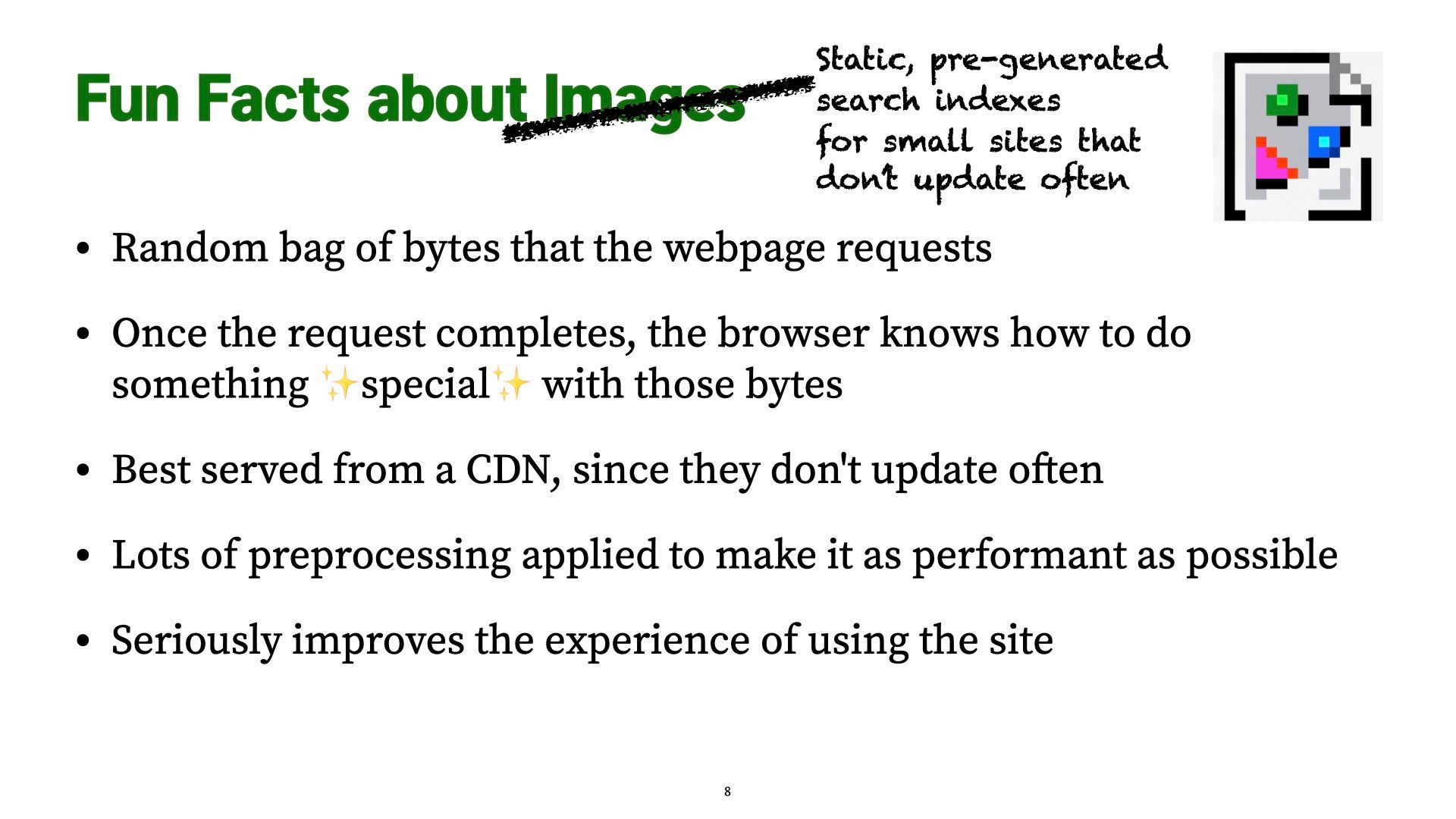James Little presented on Stork Search. He created it to solve the problem of locally owned, fast, relevant search for mostly static sites.
Stork is two things. First, it's an indexer: it indexes your loosely-structured content and creates a file that you can upload to your web server. Second, it's a Javascript + WebAssembly frontend for that index file: Stork will hook into an <input> on your web page, download the index you've specified, and display the best search results immediately to your user, as they type. The precomputed index and WebAssembly frontend module make the entire Stork engine very good, and very fast.It was really inspiring to hear James' story, starting with solving problems for his college newspaper website.
WebAssembly, ubiquitous CDN-like functionality for static sites, and that full-text search isn't black magic were the three things that happened roughly at the same time. Can a search index be treated like an image (which we know how to cache and deliver quickly), and use WebAssembly to make the experience very fast?
The answer of course is yes, with Stork!

And, how the approach to images on the web can be applied to large search indexes:

Watch the video below for the full presentation.
Video
Download a PDF of the slides or visit James' talk page »
@jameslittle230 considers Stork super early still. Use it as the obvious choice if you're building a static site. A "lifetime project" that he can keep working on.
— FISSION (@FISSIONcodes) March 25, 2021
PRs welcome! https://t.co/NR5fB9eVgb pic.twitter.com/x23u7psjVq
While the presentation was in English with English examples, yes, Stork can index non-English-language content.
Thank you James for presenting, and for making Stork! You can find James on Twitter @jameslittle230, and his personal website.
Resources
- Stork https://stork-search.net/
- Github jameslittle230/stork
Interested in more talks like this? Visit the Fission events page to sign up to get notified about new events, and join us most Thursdays for new tech talks.
